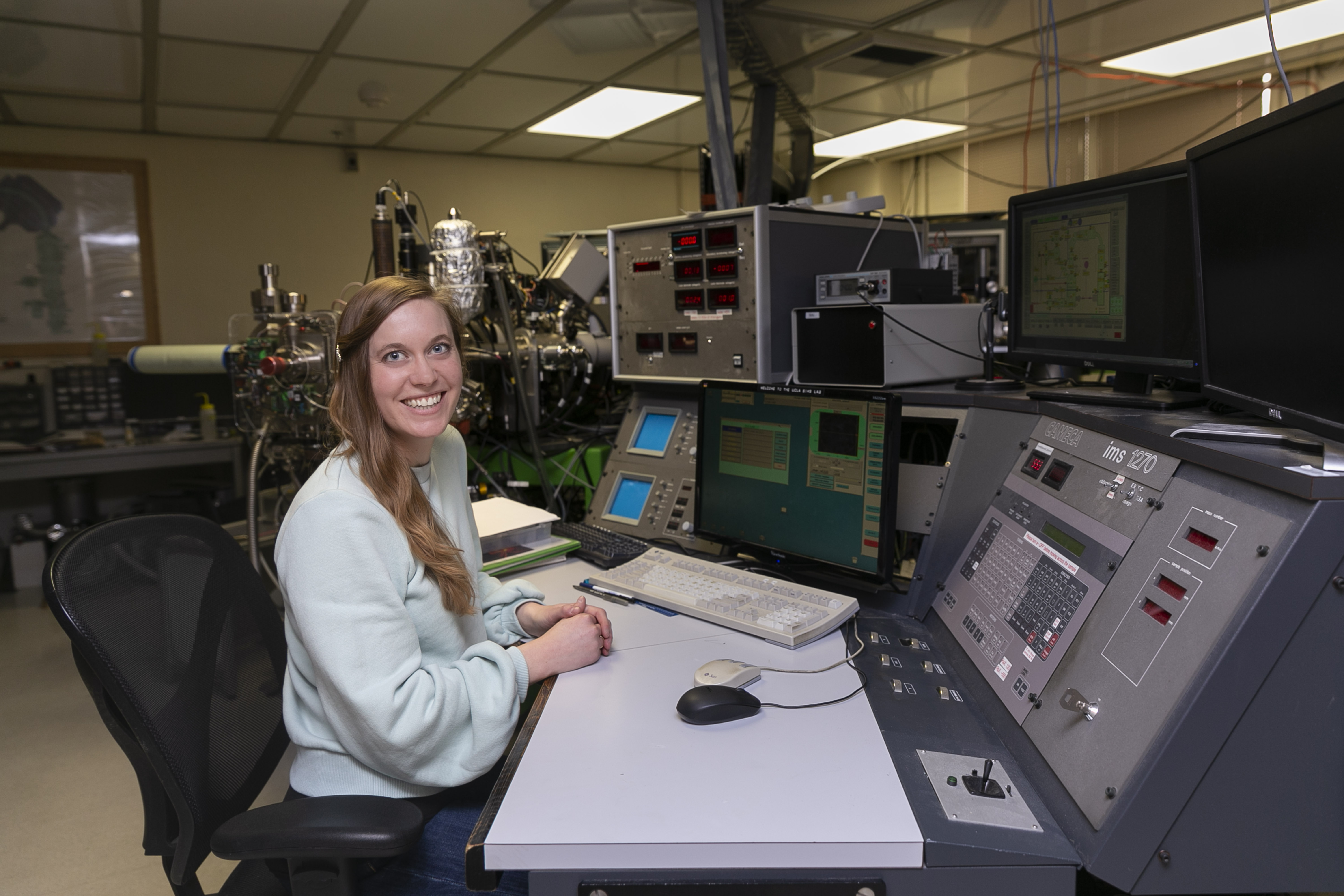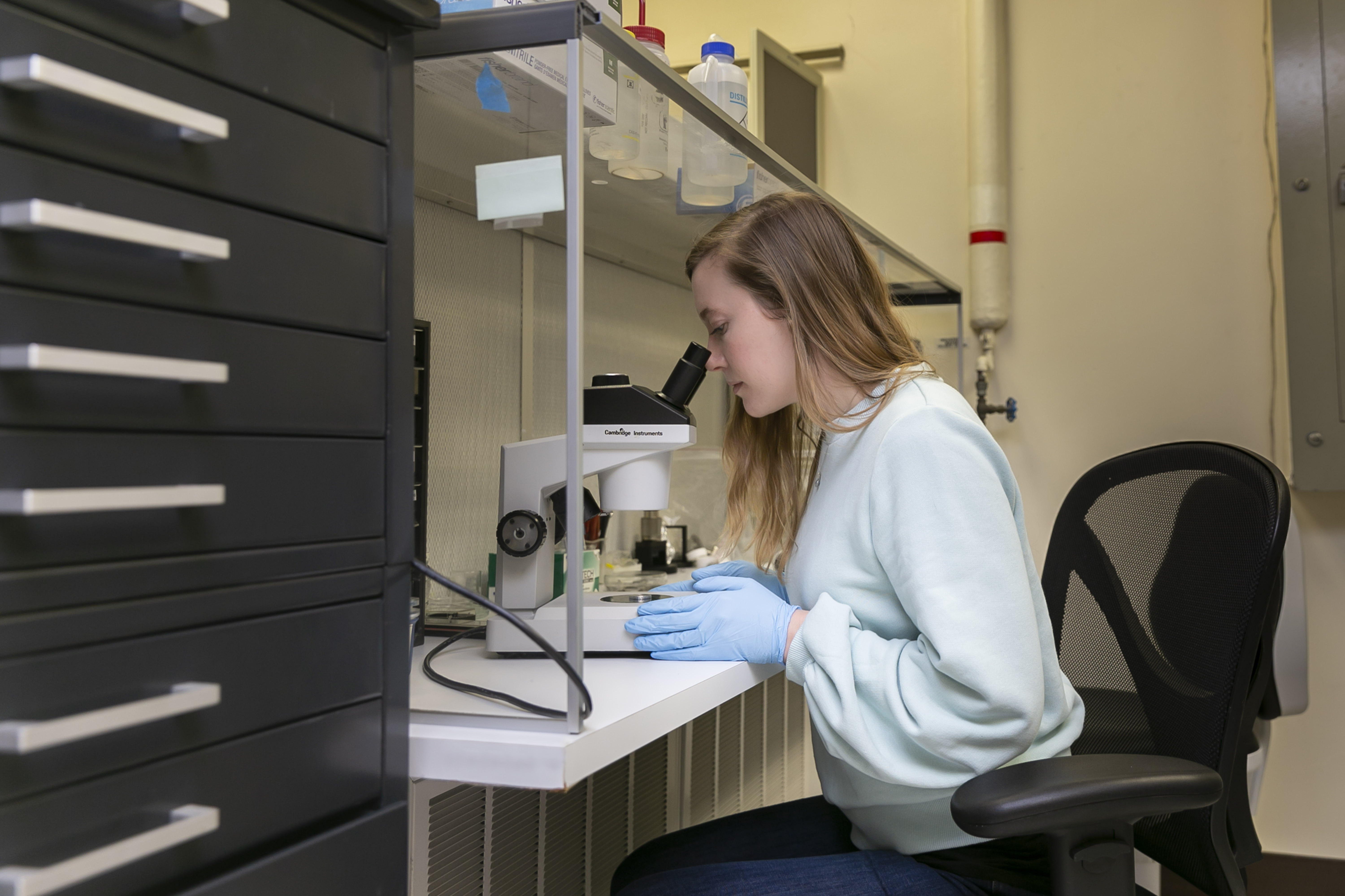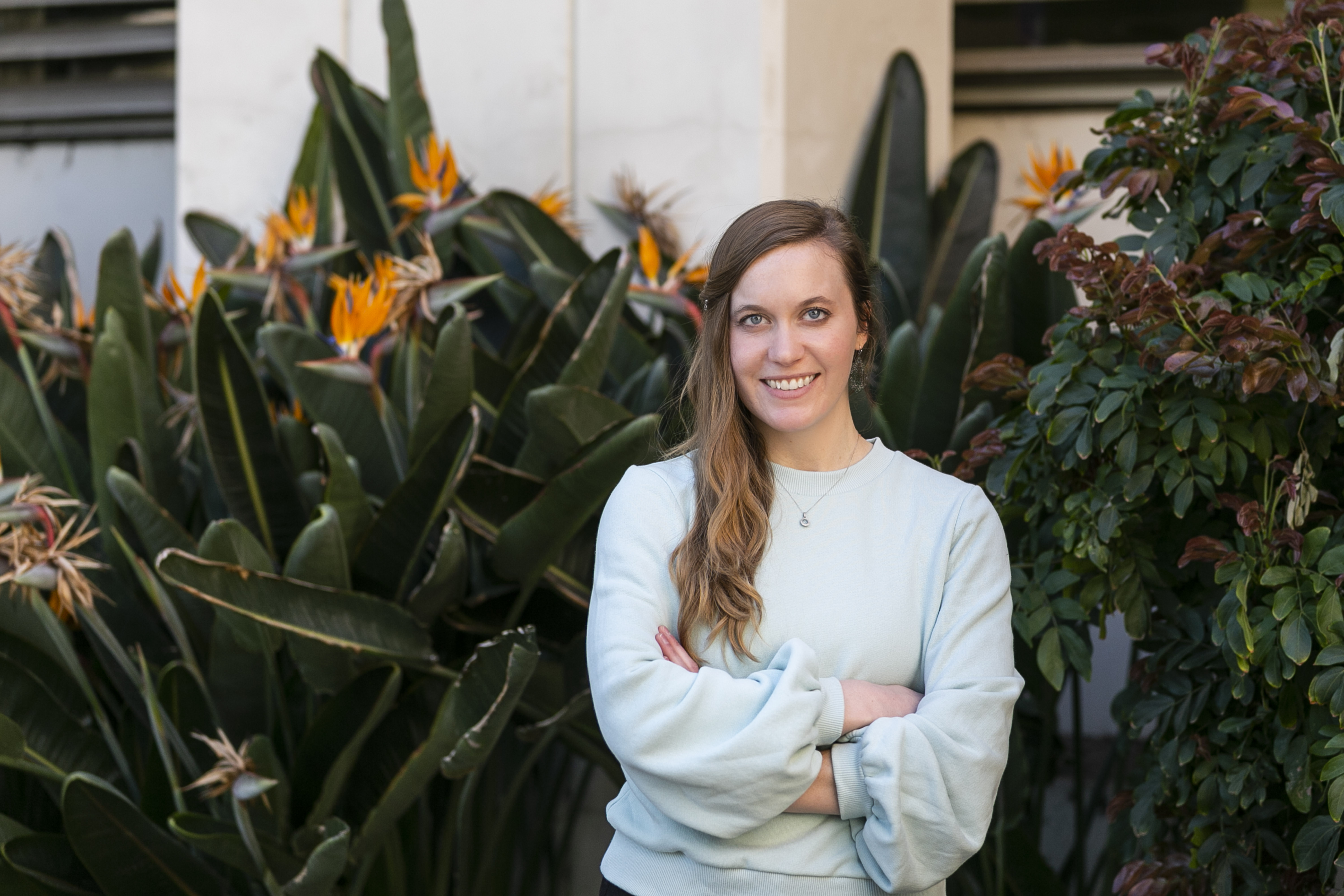2020 51 Pegasi b Fellowship Awarded to Early-Career Scientist, Hosted at UCLA Earth, Planetary, and Space Sciences Department
Studying the heritage of meteorites to develop a timeline for planet formation and other early solar system events.

Photo Credit: Heising-Simons Foundation
Emilie Dunham feels lucky every time she holds a meteorite—a rock that has survived a fiery journey to Earth’s surface after traveling through space for millions of years. By investigating the history of such primitive rocky fragments, Emilie creates a clearer picture of how particles, dust, and gas moved within our young solar system to eventually build planets. As an experimentalist, Emilie analyzes the composition of meteorite inclusions to scrutinize theories about how quickly the solar system formed. Clarifying the timing of early events not only helps astronomers comprehend how our solar system works today, but also provides clues as to the formation and evolution of distant exoplanets.

Photo Credit: Heising-Simons Foundation
“I love to look at meteorites in the lab and discover tiny grains that are older than the Earth. It’s profound to think about all the places they’ve been over those years.” - Emile Dunham
In her fellowship, Emilie will test a novel prediction that Jupiter formed sooner and faster than previously thought, impacting the path of particles between the inner and outer regions of the solar system. Emilie will measure and compare the properties of ancient meteorite samples from the two zones to either validate the theory or prompt its reconsideration. No matter the outcome, the robust dataset generated from Emilie’s work will allow for more informed comparisons between inner and outer objects in our solar system, and could unveil valuable knowledge about its origins. Emilie will work at UCLA's Earth, Planetary, and Space Sciences Department with her Faculty Mentor, Professor Kevin McKeegan, and is expected to receive a Ph.D. in geosciences from Arizona State University in May 2020.

Photo Credit: Heising-Simons Foundation
“I’m excited to work at the crossroads of astronomy and planetary sciences during my fellowship. It’s often at the intersection of diverse research areas where groundbreaking discoveries are made.” - Emile Dunham
The 51 Pegasi b Fellowship provides exceptional postdoctoral scientists with the opportunity to conduct theoretical, observational, and experimental research in planetary astronomy.
Eight early-career scientists from around the globe have been selected to receive the 2020 51 Pegasi b Fellowship for their competitive research focused on planetary astronomy.
The Foundation launched the 51 Pegasi b Fellowship Program in 2016 to nurture the field of planetary astronomy––the intersection of astronomy and planetary science––and to support the many creative, brilliant scientists eager to tackle these challenging questions. The Fellowship program recognizes early-career investigators with extraordinary potential and provides them with the opportunity to conduct independent research and to develop new theories, tools, and techniques to push the field forward. Each recipient will receive a three-year grant up to $375,000 to pursue their proposed research at their selected host institution.
To date, the Fellowship program has awarded 26 fellowship grants. This year’s fellows join a growing 51 Pegasi b community that convenes annually to share research progress, discuss the latest ideas, findings, and theories in the field, and explore new avenues for advancement.
Learn more about the fellowship and the fellows at www.51pegasib.org.
About the Heising-Simons Foundation
The Heising-Simons Foundation is a family foundation based in Los Altos and San Francisco, California. The Foundation works with its many partners to advance sustainable solutions in climate and clean energy, enable groundbreaking research in science, enhance the education of our youngest learners, and support human rights for all people. Learn more at www.hsfoundation.org.
